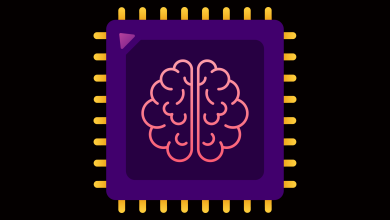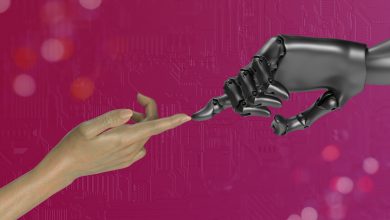Discussions of automation in the workforce can occasionally bring dystopian connotations of factories, plants, and workforces being wholesale replaced by robotics and unthinking processes. This isn’t surprising – change can be an emotive topic, and it is certain that automation will lead to some jobs changing, being replaced, or at worst, lost. Despite this reality, taking such a wholly negative view is unhelpful to properly conceptualising the role automation will play in the future workplace.
Automation and AI will not only be applied more broadly than the factory floor, or replacing manual processes, but will include automation of work traditionally seen as in the professional services, enterprise, or ‘knowledge’ sectors, through the addition of software automation. This shouldn’t be something to worry about, but a cause for excitement. Even more importantly, automation’s impact will be more positive: automation will not replace but enhance.
To properly conceptualise the role software automation will play in the future workforce, it is helpful to look back at how we have navigated changes in our past. Will the rise of automation really be that different from the technological advancements throughout history – whether the mechanisation of factories or the electrification of communications? And would we all agree that the modern economy is a safer, more balanced and fulfilling environment than one primarily rooted in manual labour?
Automation will change the workforce, unquestionably, but this is not a zero-sum game. In my role as a venture investor in European deep tech companies – many at the cutting edge of automation – I see three major areas in which automation will enhance industry and the workplace, making existing jobs better, creating jobs for the future, and creating new opportunities with improved productivity: enhancing existing roles, expanding the capacity of processes, and exploring beyond our current limits. None of these enhancements removes the human element from the work we do but enable that work to be better, go further, and be more precise while letting human insight and intervention flourish. Applied properly, automation can be the best tool we have ever developed.
Enhance: Why you should welcome robots taking your job
Robots are not coming for your jobs – but they are coming for your tasks. Automation will have a transformative impact not just in the industrial and manufacturing sectors, but will also change jobs through the workforce, including in the professional services and for knowledge workers.
Realistically, few jobs involve only one dimension: most, especially in the knowledge or technical sectors, involve multiple elements, some process-driven, some insight-driven. In these roles, automation will not replace the key role of human intervention but will become an invaluable tool to enhance the work that humans do, to make it quicker, more robust, and less prone to error. Take an area such as telecoms testing, for instance. This isn’t a process we often think about, but it is vital to keep our wireless communications networks running seamlessly, to manage capacity and eliminate issues, or at worst, fraudulent behaviour.
Automation is extremely welcome, even transformative, in this regard, as it only enhances capacity and efficacy at dramatic rates. Automated processes, such as those developed by SEGRON. This frees telecoms networks – businesses’ lifeblood during the lockdown and beyond – from pressures of continuous manual testing and optimization of the infrastructure required by hundreds of services and applications to function properly in the dynamically changing environment.
Companies like SEGRON are powering the way forward and opening this potential. In this regard, automation is vital. 5G networks offer sub-millisecond latency speeds and enormous capacity: this will create truly immense amounts of data and traffic on networks, far beyond current capacities. For 5G to deliver the promise it offers, human operators need the levelling-up potential that AI offers to test their networks. Manual testing is already slow and cumbersome and often lo longer possible due to the increasing scale and sophistication of IT systems and networks – if we are to realise the potential of Industry 4.0, we cannot do it alone. We need the power of automation.
Expand: Why you should embrace AI being smarter than you
AI is smarter than you – and that’s a good thing.
Human beings are good at interpreting data, but there is a finite limit to how much data we can process. Automation is then less a replacement to human insight than it is a key to unlocking its potential. By removing current processing limitations, enterprise automation can unlock vast amounts of data, which will only enhance our ability to derive insights and make decisions – what humans are best at.
AI and automation will truly enhance every area of the workforce – it’s even carving a place for itself in venture investing. A study in the Harvard Business Review found that the average VC spends an average of 118 hours on due diligence per deal – that is time that could be better spent dedicating personal, human insight to a deal. AI and machine learning are powering such algorithms to process investment data and automate a degree of the due diligence process. This isn’t about replacement, but an enhancement, and smart collaboration.
Explore: Why the automated future is worth being excited about
What is perhaps most exciting about automation is how it will help us explore and innovate in ways we cannot even yet imagine. Thinking only about how the workplace of today will change is limiting. There is literally a universe of possibilities to explore, and in this venture, automation will be our best ally.
Automation has the potential to see our world in ways that we cannot, help us understand our world and our place in the universe, and even help us think beyond and explore our planet, to unlock potential we can only imagine. This does not replace human instinct but gives it a unique platform to reach new heights.
Automation is already helping us understand our world better. Utilising lower-earth orbit satellites, start-ups such as ICEYE and Hydrosat are providing us with new ways to view and perceive our world. This not only opens our limited perspective on how we are utilising our planet, our resources, our infrastructure, which has benefits for trade and industry but can also give us a vital view on climate and weather. Automation can help us process and understand the data we need to first understand how issues of climate change are affecting our planet.
Automation, AI, and machine learning will likewise help take our understanding and perspectives beyond our planet, similarly helping to process the mammoth amounts of data we are able to collect in space exploration. There is no bigger, more complex area to explore than space, and we simply cannot do it alone. AI will be our partner in helping to translate data to solve problems and understand concepts that are now beyond our realm of possibility. To call it exciting is an understatement.
Conclusion
Humans will work collaboratively with automation – experiencing the benefits of increased safety, health, productivity, and as a result, wellbeing and satisfaction. Automation will enrich and enhance jobs.
Beyond this, humans will be freer from manual processes to inject creativity, emotion, social instinct, and moral judgement into our automated processes and jobs.
Investing in automation is investment in the future. Automation can lead to increased productivity and can be the greatest wealth generation revolution since manual labour was replaced with the steam engine.



